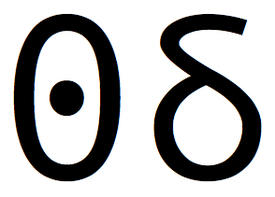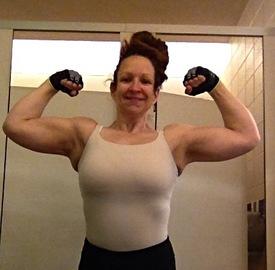Anyone on a low carb diet?
Options

Elizabeth1515
Posts: 26 Member
So I'm on a low carb diet. When I joined MFP I changed my carb intake to 25g per day I was finding that hard because of nuts, yoghurt and fruits I was eating but usually I'd like go over my carb intake by 56g so I I'd have about 86g of carbs . I've changed my carb intake to 150g is that ok?
0
Replies
-
Depends on what your goals are.
I follow Dr. Jonny Bowden's plan (unleash your thin.) It was a lot of reading but in the end it contain the most substantiated research references I've ever seen on the subject.
In his blueprint he eliminates the following:- Sugar
- Wheat Products
- Cereal (including cereal grains like corn, etc.)
- Pasta
- Potato
- Rice
- Fruit (except apples and then only if you have 15+ lbs to loose)
- Alcohol
- Dairy
Anyway, once you gain an understanding of the role insulin plays in your weight management then you have a rational reason to forego the carbohydrates.
It gets easier.0 -
I believe all diets work if you follow them. What works best for me is Atkins. I love the way I feel on a low carb lifestyle. I hate to call it a diet because diets are usually short term. Good Luck! I've lost 40 pounds a couple years ago. It's encouraging also to know that when you lose weight on Atkins you don't lose so much muscle as you do on other weight loss plans. Protein is muscle, muscle burns fat! Good luck!0
-
If you have medical issues (with regards to carbs) then by all means limit them.
What Brenda said......all diets work if you follow them. Weight loss is about calorie deficit. The way you achieve that deficit is up to you.
Low carb would be a short term change for me, not a lifestyle change. I've lost weight before and regained it. No more - I'm not eliminating any foods that I won't be eliminating for the rest of my life.0 -
wow @N200lz those are like all my favorite things. Obviously, not the diet for me.
Carbs are less important than calories consumed and calories burned unless you have some kind of medical thing going on. You don't have to eat low carbs to lose weight, you need to eat less calories than you burn.
Personally, I think eating less than I burn is hard enough. I'm not trying to eliminate foods.0 -
-
That is still considered low carb or moderate carb in my opinion. I eat low carb and generally I don't count in fruit yogurt or cottage cheese or nuts as part of my carbs or vegetables. I know it's not accurate or precise (if I were trying to get into ketosis I would) it works well for me and my body needs fruit and beans so I don't stress about it. I'm losing still and less stress than trying to keep inanumber of carbs. ( although I try to limit my fruit and my yogurt to a low sugar amount like a plain Greek yogurt and a banana or half a nectarine added to yogurt)0
-
I try to eat lower carb because it keeps my digestive tract much happier. I don't set any limits, though--just try to make lower carb choices most of the time.0
-
This content has been removed.
-
I'm on a low-carb lifestyle so it's all pretty routine for me. For the calorie-in-calorie-out folks, yes calories still matter however if you are smart about what carbs you choose then the calories follow suit. Bread was the hard one for me but once I had the reasoning as to why that was on the list, it was no longer an issue.
When I started this, I had an Idea as to where I would bottom out but I lost more than that ..... much to my surprise. I did gain some weight back but that was due to the intensity of my workouts and was all lean.
The point being, you can maintain this type of lifestyle without feeling deprived. My typical breakfast on the weekend is steak and eggs, with fruit in place of potatoes and bread.0 -
Lots of low carbers here! http://community.myfitnesspal.com/en/group/394-low-carber-daily-forum-the-lcd-group
I felt better after reducing my carbs to 40%, but that's as low as I can comfortably go ATM.0 -
I lost most of my weight eating around 150 g carbs and am maintaining eating around that level or more. Lots of people here have lost weight on many more carbs than that. So my answer is sure, 150 g will likely work just fine. The amount of carbs you eat is really just personal preference unless you have a problem with hunger when eating more (I never have) or don't get enough protein or fat.0
-
As others have said it kcal, not carbs, so eat where you are comfortable and where you think you can sustain long term.
The term "forbidden" was used. I tend to disagree with that term being used on food. No food is "forbidden" in a healthy diet (ok, maybe Slim Jims). Just eat whatever foods give you a good balance of carbs/fat/protein they YOUR body is comfortable with. If that includes the occasional drink, candy bar or bologna sandwich then it's all good. Your body will tell you what you need.0 -
In his blueprint he eliminates the following:
- Sugar
- Wheat Products
- Cereal (including cereal grains like corn, etc.)
- Pasta
- Potato
- Rice
- Fruit (except apples and then only if you have 15+ lbs to loose)
- Alcohol
- Dairy
This isn't really 9, it's 6, as wheat, pasta, and rice are subsets of cereal (and typically pasta is a subset of wheat). Seems weird.
I assume sugar means "added sugar," as apples have lots of sugar (and vegetables also have sugar).
Anyway, I don't drink alcohol (although I know you can lose weight perfectly well while doing so), but easily lost lots of weight eating the rest of these foods. Some, like added sugar, in more limited quantities, but other, like dairy and fruit, in larger quantities than before I was focusing on decreasing calories.
As others have said, OP, you can lose weight following pretty much any diet (or simply cutting calories in whatever way works best for you). No need for this kind of thing.0 -
If 150g of carbs fits into your calorie goal and otherwise works for you, yes, it should be OK.
My "target" is 600g of carbs on lifting days and 350g on non-lifting days and I've unleashed my thin by 124 pounds.
It's all a question of what works for you.0 -
Elizabeth1515 wrote: »So I'm on a low carb diet. When I joined MFP I changed my carb intake to 25g per day I was finding that hard because of nuts, yoghurt and fruits I was eating but usually I'd like go over my carb intake by 56g so I I'd have about 86g of carbs . I've changed my carb intake to 150g is that ok?
it is OK in as much as carbs aren't some evil thing nor do carbs dictate whether you will lose weight or not...in RE to a low carb diet, I would think 150g of carbs would be more of a moderate carb intake as opposed to low carb...if you're trying to do keto or something then it would not be ok...0 -
Depends on what your goals are.
I follow Dr. Jonny Bowden's plan (unleash your thin.) It was a lot of reading but in the end it contain the most substantiated research references I've ever seen on the subject.
In his blueprint he eliminates the following:- Sugar
- Wheat Products
- Cereal (including cereal grains like corn, etc.)
- Pasta
- Potato
- Rice
- Fruit (except apples and then only if you have 15+ lbs to loose)
- Alcohol
- Dairy
Anyway, once you gain an understanding of the role insulin plays in your weight management then you have a rational reason to forego the carbohydrates.
It gets easier.
I thought forbidden 9 was a comedy remix of The Forbidden Planet and Plan 9 From Outer Space? Like a planet aliens are guarding from humans with an army of zombies or something.
It basically just sounds like 9 foods worked out to make a low carb diet for people that don't know what carbs are. Normally wheat products should cover cereal and pasta.0 -
I'm on a low-carb lifestyle so it's all pretty routine for me. For the calorie-in-calorie-out folks, yes calories still matter however if you are smart about what carbs you choose then the calories follow suit. Bread was the hard one for me but once I had the reasoning as to why that was on the list, it was no longer an issue.
When I started this, I had an Idea as to where I would bottom out but I lost more than that ..... much to my surprise. I did gain some weight back but that was due to the intensity of my workouts and was all lean.
The point being, you can maintain this type of lifestyle without feeling deprived. My typical breakfast on the weekend is steak and eggs, with fruit in place of potatoes and bread.
That'\s not how it works. If you are weighing your food and tracking your calorie intake, then you know how many calories you are eating. There's no magic way to have your calorie intake be low enough to lose weight, just because you are keeping your carb intake low. If you gained some weight back, it was because you were eating more calories than you were burning.0 -
150 is a great idea. You can eat beans, nuts, dairy, and fruits and so on.
 0
0 -
Less than 100g per day for me. Carb intake is directly relative to what my glucometer says. If I don't eat the carbs, I don't have to burn them.
 0
0 -
I've heard that a lot but as I said, after reading the material Dr. Jonny Bowden assembled, I learned there's more to it than just calories as there is more to it than just carbs.That'\s not how it works. If you are weighing your food and tracking your calorie intake, then you know how many calories you are eating. There's no magic way to have your calorie intake be low enough to lose weight, just because you are keeping your carb intake low. If you gained some weight back, it was because you were eating more calories than you were burning.
Excerpt:Calories Count, But They’re Not the Whole Picture Every conventional weight loss program—or at least the vast majority of them—is based in some way on the principle that everything ultimately comes down to calories. I don’t agree. But just because calories aren’t the whole picture does not mean they’re out of the show. They’ve just been moved from a starring role to that of a supporting—but still important—player. This was never better illustrated than in a brilliant study done at Harvard by Dr. Penelope Greene.ǂ Here’s what she did: She took two groups of people and put them on different diets. Group one got 1500 calories of low-fat food. Group two got 1800 calories of low-carb food. Sounds like a cool experiment, right? If weight loss is solely about calories, group two— the 1500 calorie group—should have lost more weight than group one, since they were eating 300 calories a day (2100 calories a week!) less than group one. The fact that group one was eating different kinds of food than group two shouldn’t have mattered. Those eating the higher-calorie diet would have been expected—under the “calories is all” theory—to gain more weight. But that’s not what happened. Group two—the group eating a low-carb diet of 1800 calories a day—actually lost more weight than the group eating a high-carb diet of 1500 calories a day. If it was all about calories, the higher-calorie, low-carb group should not have won the weight loss contest. You might be forgiven for concluding, from this study, that calories don’t really matter. Not so fast. Dr. Greene added an ingenious twist to the study. She threw in a third group. The third group also got the same low-carb food that group two got, but instead of eating 1800 calories of low-carb food like group two did, they ate 1500 calories worth, the same number of calories that group one had consumed. Dr. Greene called this the “low-carb, low-calorie” group. And these folks lost the most weight of all. Clearly something is going on here besides calories. But equally clearly, calories are hardly irrelevant. In our eagerness to focus on the missing link in weight loss—hormones like fat-storing insulin—we should be careful not to throw out the baby with the bath water. Bottom line: Calories count. But they are very far from the whole picture.
0 -
That's a 2003 study with 21 participants -- 7 in each group. Also, it's 12 weeks and there was no effort to control for protein amounts. The "low fat" diet wasn't really low fat, it was 55 percent carbohydrate, 30 percent fat, and 15 percent protein. The low carb groups were 5 percent carbohydrate, 30 percent protein, and 65 percent fat. This is significant because there's some evidence that protein differences make a difference (either because of an effect on calories outs or because we seem to have underestimated the calories actually available from high protein foods like meat). Also significant is that it was only 12 weeks given the water drop that occurs with low carb, and other evidence that low carb leads to a faster initial weight loss but that groups will even out after a longer time.
The researcher, Greene, said she intended to do a longer term study with more participants back in 2003 when this one was done, but I can't find any indication that she has. Another of the participants is Walter Willett, and he doesn't promote low carb as superior (or recommend cutting out all fruit but apples and grains, etc.).
http://news.harvard.edu/gazette/2003/10.23/03-lowcarb.html
Also, it seems as if Bowden's doctorate is questionable: https://holfordwatch.wordpress.com/2008/07/02/tara-parker-pope-and-jonny-bowden/0 -
Don't forget to subtract fiber to ascertain net carbs.
 Unfortunately MFP doesn't do this subtraction for us yet, which throws off percentages. 0
Unfortunately MFP doesn't do this subtraction for us yet, which throws off percentages. 0 -
Yes, you are correct although I have found that some entries (and I'll use Quest Bars as an example) can show total carbs as well as net carbs based upon your selection. Both are usually there as a selection.mommyshortlegs wrote: »Don't forget to subtract fiber to ascertain net carbs. Unfortunately MFP doesn't do this subtraction for us yet, which throws off percentages.
Unfortunately MFP doesn't do this subtraction for us yet, which throws off percentages.
Also, the sugars in Greek Yogurt is a bad number as they have already been eliminated in the fermentation process. Blame that on bad math in the manner in which it is calculated.
0 -
I am Ketogenic so I try to keep my net carbs less than 30. Keeps my appetite in check and helps me build awesome muscles.0
-
Unless you are on a medically prescribed low carb diet which instructed you to eat 25g of carbs per day, are trying to stay very low carb for a health reason, or trying to stay in ketosis, then you should be fine.... Unless that level of carbs triggers overeating for you.0
-
mommyshortlegs wrote: »Don't forget to subtract fiber to ascertain net carbs.
 Unfortunately MFP doesn't do this subtraction for us yet, which throws off percentages.
Unfortunately MFP doesn't do this subtraction for us yet, which throws off percentages.
If you don't mind using a hack there is a way to set up MFP to count net carbs. Here is a video showing how (if link doesn't work look for YouTube video: How To: Setup MyFitnessPal for Net Carbs by Manda Panda https://www.youtube.com/watch?v=TtHtVCblKlc&index=6&list=FL3Dq9g93AXBeCdVAU5qoQdw
https://www.youtube.com/watch?v=TtHtVCblKlc&index=6&list=FL3Dq9g93AXBeCdVAU5qoQdw
0 -
I've heard that a lot but as I said, after reading the material Dr. Jonny Bowden assembled, I learned there's more to it than just calories as there is more to it than just carbs.That'\s not how it works. If you are weighing your food and tracking your calorie intake, then you know how many calories you are eating. There's no magic way to have your calorie intake be low enough to lose weight, just because you are keeping your carb intake low. If you gained some weight back, it was because you were eating more calories than you were burning.
Excerpt:Calories Count, But They’re Not the Whole Picture Every conventional weight loss program—or at least the vast majority of them—is based in some way on the principle that everything ultimately comes down to calories. I don’t agree. But just because calories aren’t the whole picture does not mean they’re out of the show. They’ve just been moved from a starring role to that of a supporting—but still important—player. This was never better illustrated than in a brilliant study done at Harvard by Dr. Penelope Greene.ǂ Here’s what she did: She took two groups of people and put them on different diets. Group one got 1500 calories of low-fat food. Group two got 1800 calories of low-carb food. Sounds like a cool experiment, right? If weight loss is solely about calories, group two— the 1500 calorie group—should have lost more weight than group one, since they were eating 300 calories a day (2100 calories a week!) less than group one. The fact that group one was eating different kinds of food than group two shouldn’t have mattered. Those eating the higher-calorie diet would have been expected—under the “calories is all” theory—to gain more weight. But that’s not what happened. Group two—the group eating a low-carb diet of 1800 calories a day—actually lost more weight than the group eating a high-carb diet of 1500 calories a day. If it was all about calories, the higher-calorie, low-carb group should not have won the weight loss contest. You might be forgiven for concluding, from this study, that calories don’t really matter. Not so fast. Dr. Greene added an ingenious twist to the study. She threw in a third group. The third group also got the same low-carb food that group two got, but instead of eating 1800 calories of low-carb food like group two did, they ate 1500 calories worth, the same number of calories that group one had consumed. Dr. Greene called this the “low-carb, low-calorie” group. And these folks lost the most weight of all. Clearly something is going on here besides calories. But equally clearly, calories are hardly irrelevant. In our eagerness to focus on the missing link in weight loss—hormones like fat-storing insulin—we should be careful not to throw out the baby with the bath water. Bottom line: Calories count. But they are very far from the whole picture.
3 groups of 7 people? Also, this is just one lady, taking 21 people and putting the three groups on separate diets. There's not much scientific to this study. If the N pools were larger, and the people kept isolated from any outside possibility of ingesting any other food, okay. And if the diets were carefully controlled and macro-isolated, sure. How do we know that all of the people in her study adhered to the calorie intake and macro ratio? Do we know if all of the calories were carefully weighed and documented to ensure proper numbers? Without a proper double-blind scientific study, there's never perfect accuracy in study results.0
This discussion has been closed.
Categories
- All Categories
- 1.4M Health, Wellness and Goals
- 396.9K Introduce Yourself
- 44.2K Getting Started
- 260.9K Health and Weight Loss
- 176.3K Food and Nutrition
- 47.6K Recipes
- 232.8K Fitness and Exercise
- 452 Sleep, Mindfulness and Overall Wellness
- 6.5K Goal: Maintaining Weight
- 8.7K Goal: Gaining Weight and Body Building
- 153.3K Motivation and Support
- 8.3K Challenges
- 1.3K Debate Club
- 96.5K Chit-Chat
- 2.6K Fun and Games
- 4.5K MyFitnessPal Information
- 16 News and Announcements
- 18 MyFitnessPal Academy
- 1.4K Feature Suggestions and Ideas
- 3.1K MyFitnessPal Tech Support Questions



















